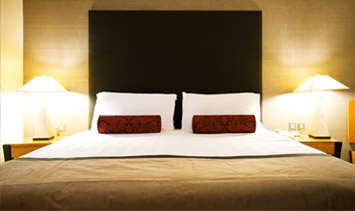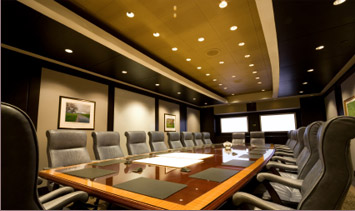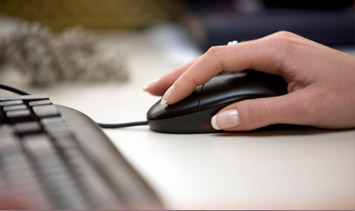Take the Stress Out of Business Travel
A recent survey of 6,000 business travellers found that traveling for work can result in a loss of almost 7 hours due to stress (time spent not working or resting). That's almost one whole workday! Another study done by the US National Institute of Health on international travellers reported that one-third of 498 respondents had high to very high levels of travel stress.
Business travel may appear glamorous - travelling to new places, staying in hotels and eating out might seem like a wonderful break away from the normal work routine BUT it can also be extremely stressful. Ask anyone who has spent a few days travelling and they'll tell you it can be tiring and taxing. Driving, flying, navigating around a strange city, finding your hotel or meeting room and networking, all the while staying in contact with your business or office, are all factors that can lead to stress.
Business Travel Stress Triggers
The triggers for stress when travelling can be grouped into three main categories:
- Time away. Time travelling is time spent away from work and your business. Sometimes it may feel like "lost time" that you'll have to make up later. We've written articles before on how to stay productive while travelling however sometimes it's impossible to get work done while you are on the move. As a consequence day to day work tasks can pile up while you're travelling on business and they need to be tackled when you return to work, putting you behind schedule and adding to your stress.
- Problems while travelling. So many things can go wrong when you're travelling - from missing passports, tickets or luggage; to forgetting to take much needed items with you while away, to missing a connection; as well as flight delays or delays due to traffic congestion or even a poor internet connection. The list is endless and can often cause extreme anxiety and stress for many business travellers.
- Breaking Routine/New Schedule. Breaking from your normal routine and having to make changes, think on your feet and be aware of what's happening around you isn't conducive to relaxing. Changes to the bed you're sleeping in and the food you're eating can also lead to problems like lack of sleep or not being able to stick to a healthy diet can result in increased stress levels.
Health and Well-being
Not only is stress a problem many business travellers have to combat, but it can also have an impact on health and well-being. Travel can have a bigger influence on health than many people realise.
Common issues such as long travel times, driving distances or lack of sleep can result in changes to judgment, mood and the ability to concentrate. Researchers at the University of Surrey and Linnaeus University in Sweden have found that flights resulting in jetlag can also mean business travellers are still battling the effects up to as much as six days after flying and it can take as much as eleven days for the body to return completely to normal.
Travellers are also at risk from of developing deep vein thrombosis from sitting for long periods, and are more likely to come into contact or be exposed to cold, flu and other germs.
So how can you minimise stress and reduce your risks?
Strategies to Reduce Stress
Although business travel can be stressful there are some things you can do to reduce stress and stay healthy while travelling.
- Plan Your Packing. It's so easy to forget to take something with you when you travel. Remove one of the biggest triggers of stress by packing efficiently. How many of us have gotten to our destination only to realise that we've not packed an everyday necessity or an important file that we need? Why put yourself in this situation when there is a simple solution? Before any trip make a checklist of all the items you'll need. Don't leave your checklist to the night before, start it a few days before you're due to travel and add to it as you remember things. Split your list into different headings: personal (daytime clothes, nightime clothes, personal items like toiletries), business (clothes, files, devices) etc. Lastly, check the weather, if it's likely to be raining, you may want to pack an umbrella. It's also worth keeping/copying your list so you can use it for other trips, rather than having to redo your list each and every time you travel.
- Plan Your Comfort. Take and wear comfortable clothing for travelling and relaxing while you're away. Wear layers so you can cope with cold and warm weather. It's a good idea to keep your wardrobe simple and interchangeable so that you can deal with any unexpected issues like spills. As part of your checklist think about those items you'll need during your break times e.g. headphones, earplugs, a book or magazine and a travel pillow to help you rest and relax.
- Plan Smart. Don't jam pack your itinerary. Try to schedule meetings and networking to allow for breaks so you don't become over-tired. It may seem like a great idea to pack in as much as you can but it will mean you'll probably end up too tired to concentrate and you won't get the most out of your business trip so any meetings you do have may end up being a lost opportunity! When you've scheduled rest breaks make sure to rest. The temptation is very often to try to squeeze in a bit more work but again this may mean that you aren't at your best when you go back into meetings.
- Plan Ahead. Double check you know where your hotel is or where your meetings are taking place and look for the best way to get there. If your hotel and meetings are in separate locations look at the best ways to travel between the two. That way there isn't the stress of trying to work out routes while you're away.
- Plan to Stay Healthy. One of the problems of being away from home is it's all too easy to change your eating/diet and exercise habits. While you're away try to make time to take advantage of the hotel gym or swimming pool. Even if you only spend twenty minutes winding down at the end of the day you'll feel the benefits. Exercise is also likely to help you sleep better. Consider packing healthy snacks such as nuts that are high in protein or dried fruit to help keep your energy levels up. It's also vital to drink plenty of water to keep hydrated.
- Plan for When You're Back. Keep all of your business expenses receipts in one place while you're travelling and get your expense report submitted as soon as you get back. That way it's out of the way and you can get back to focussing on work.
For more business travel articles please see our articles section. You can also contact us if you are looking to book hotel accommodation or a conference meeting room.





